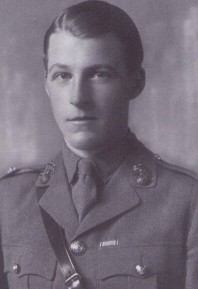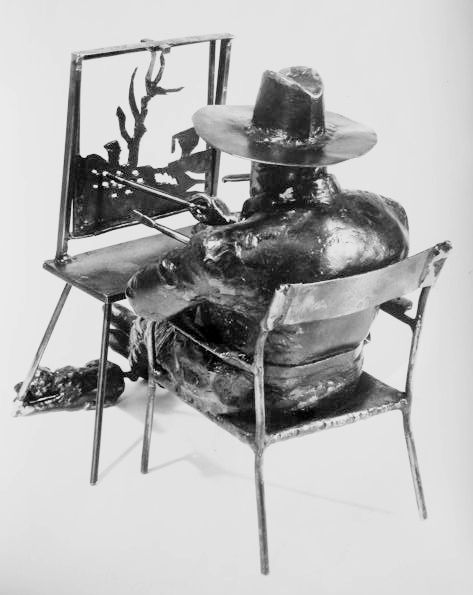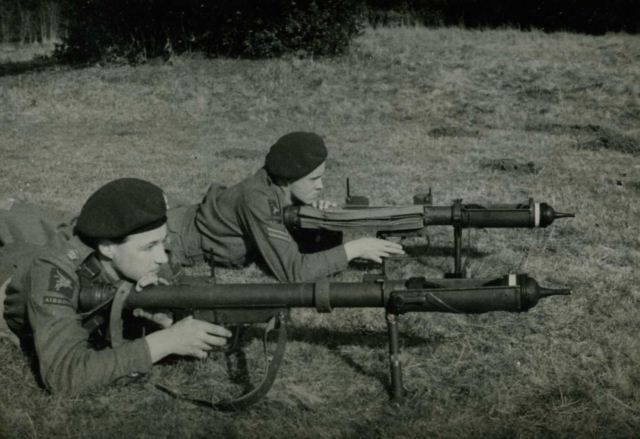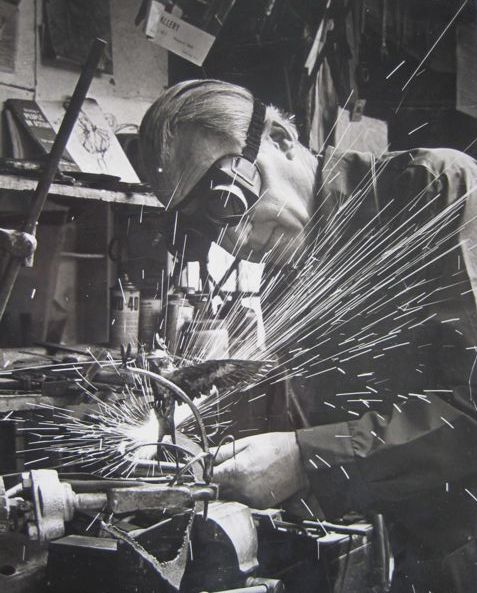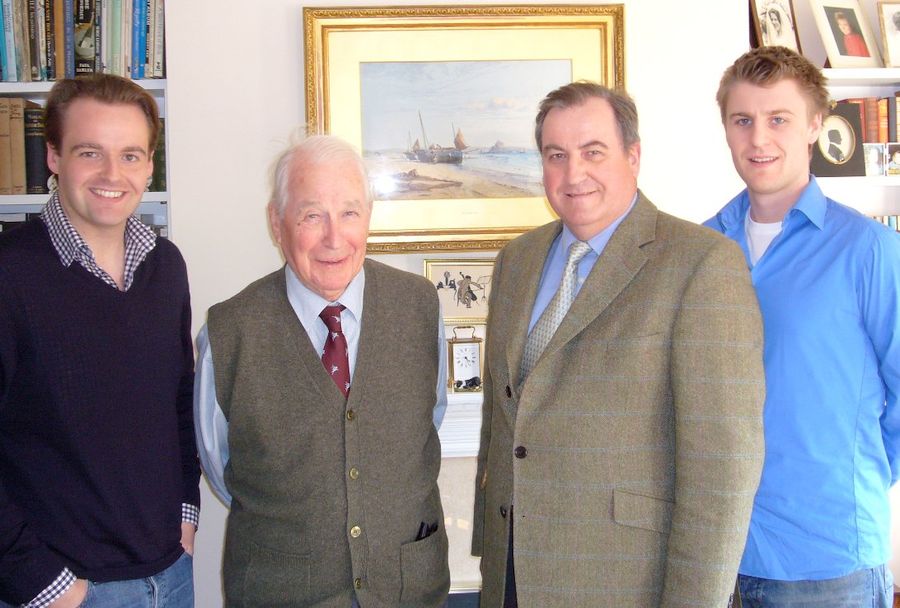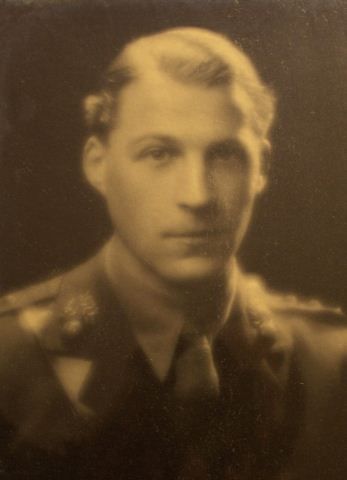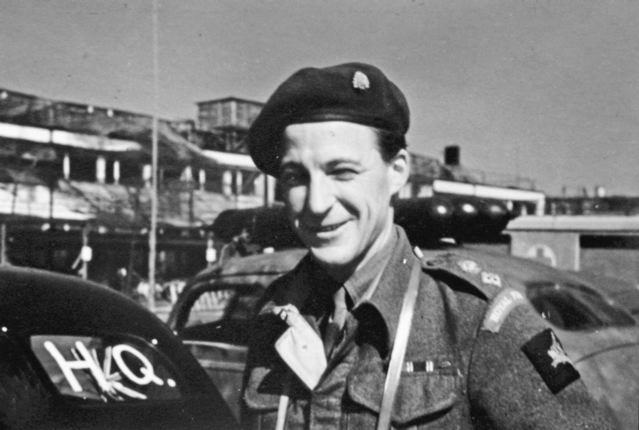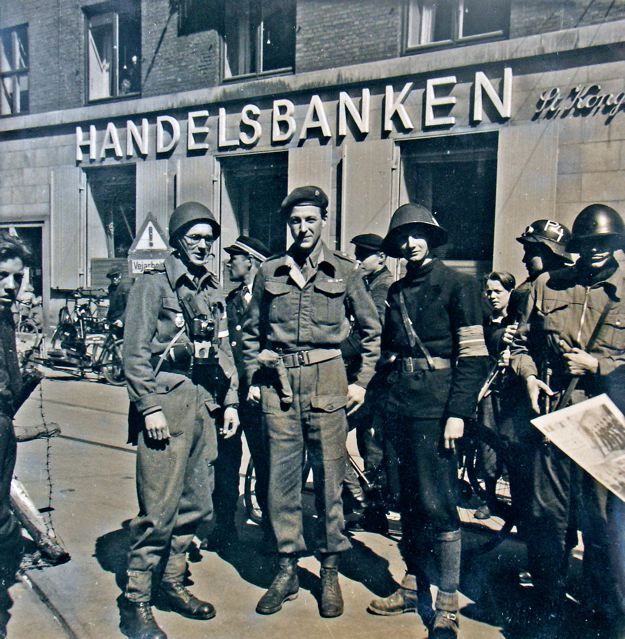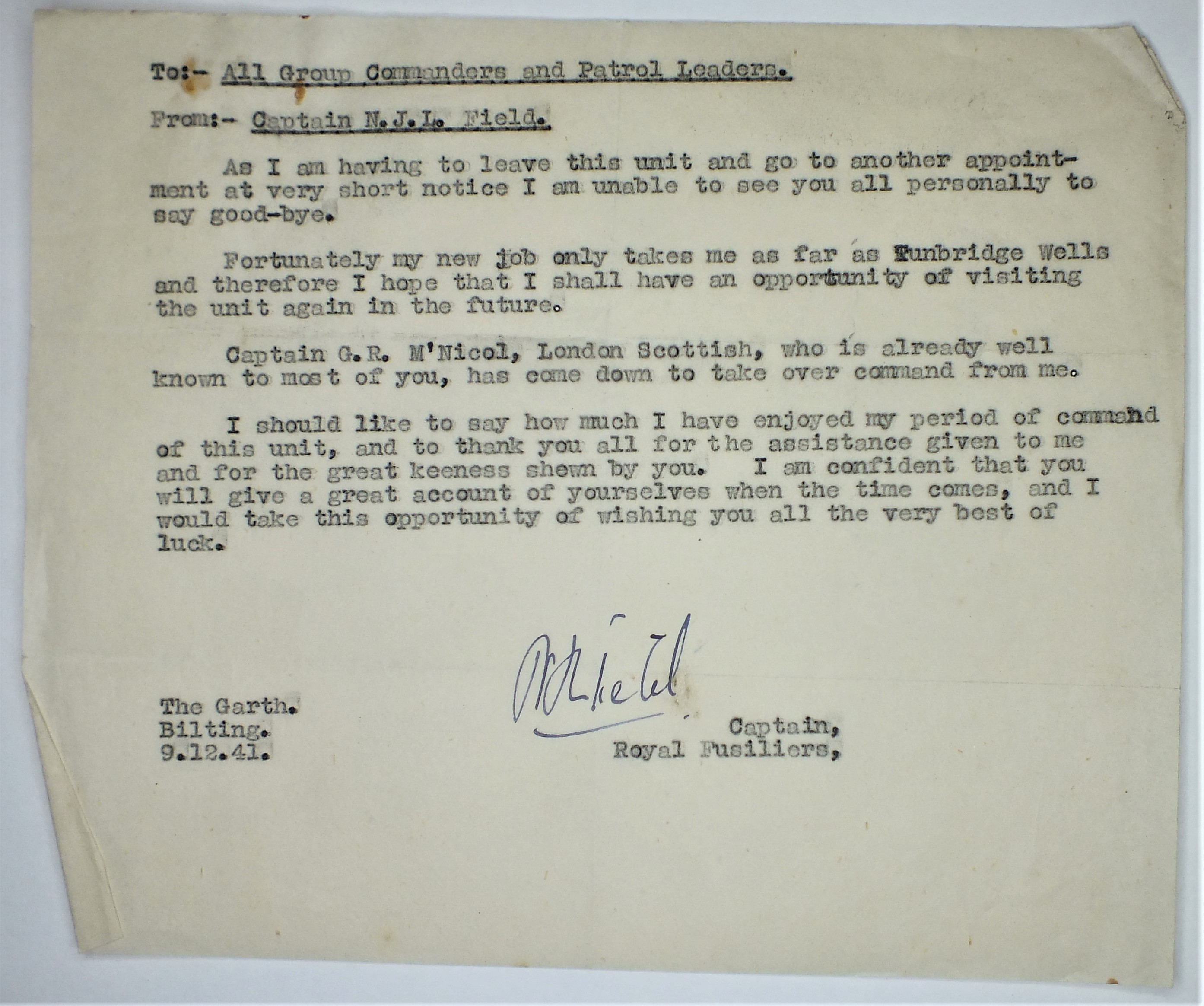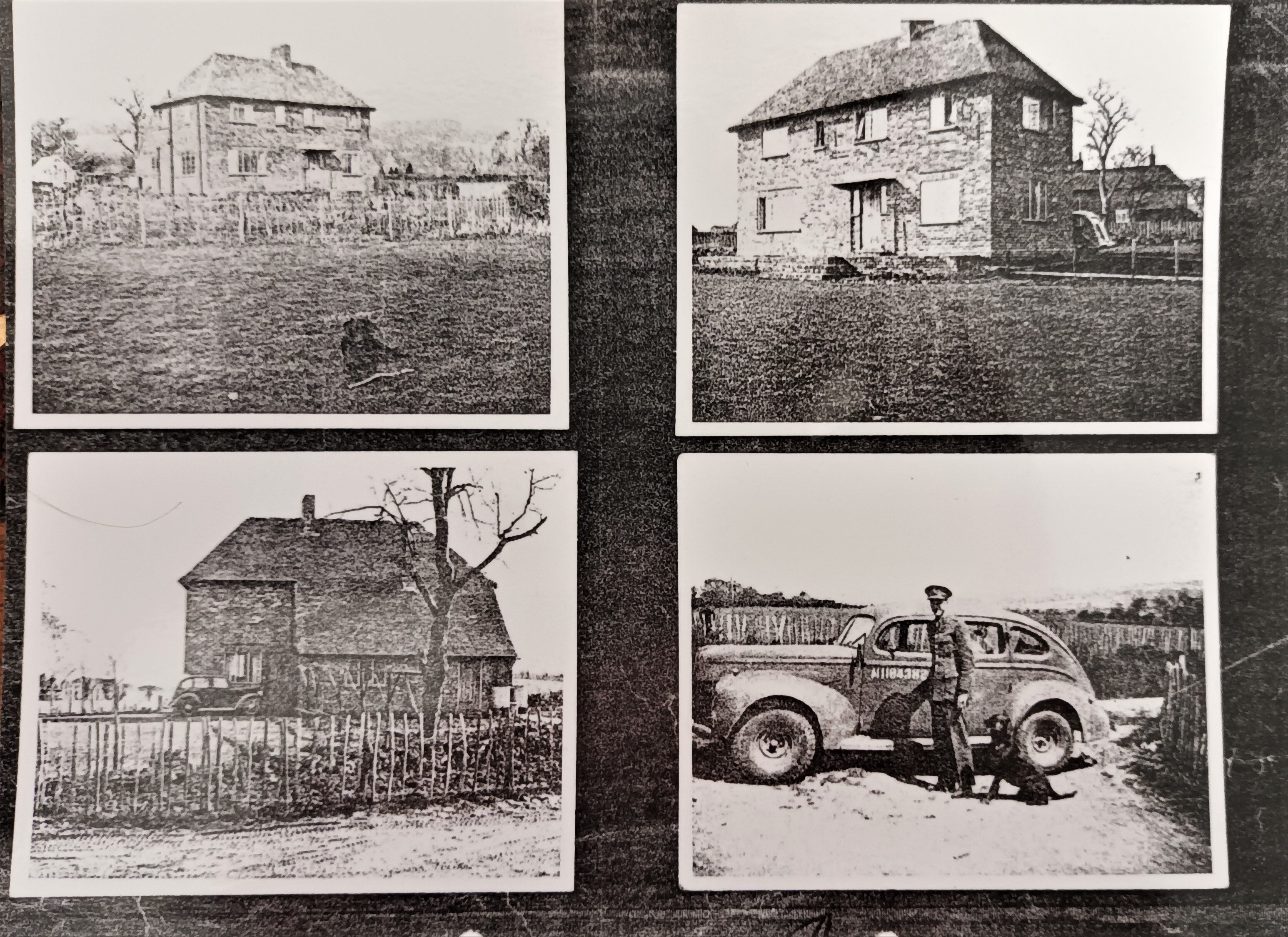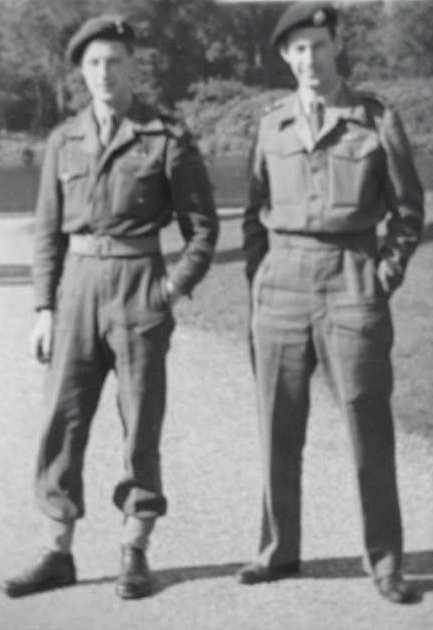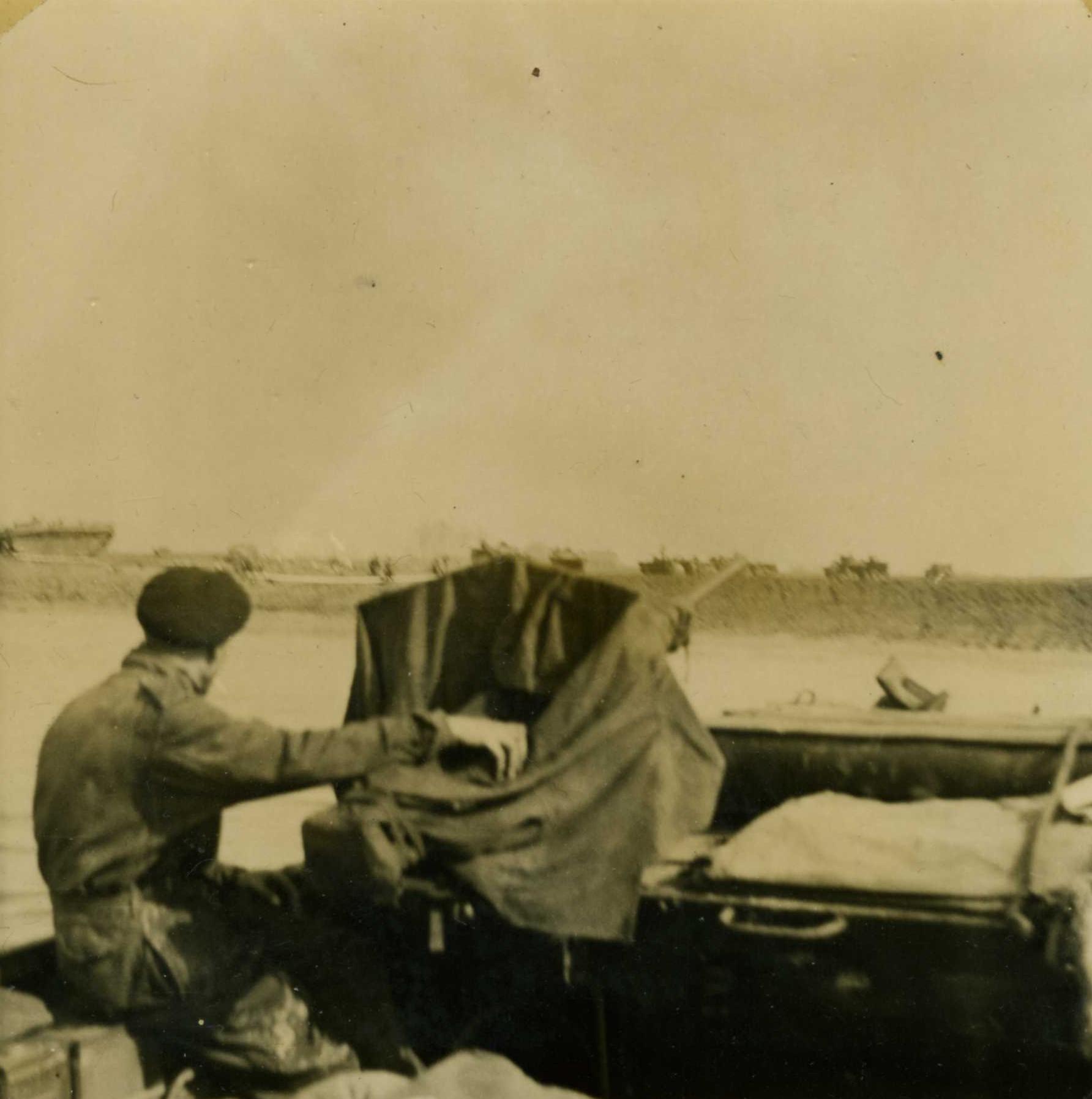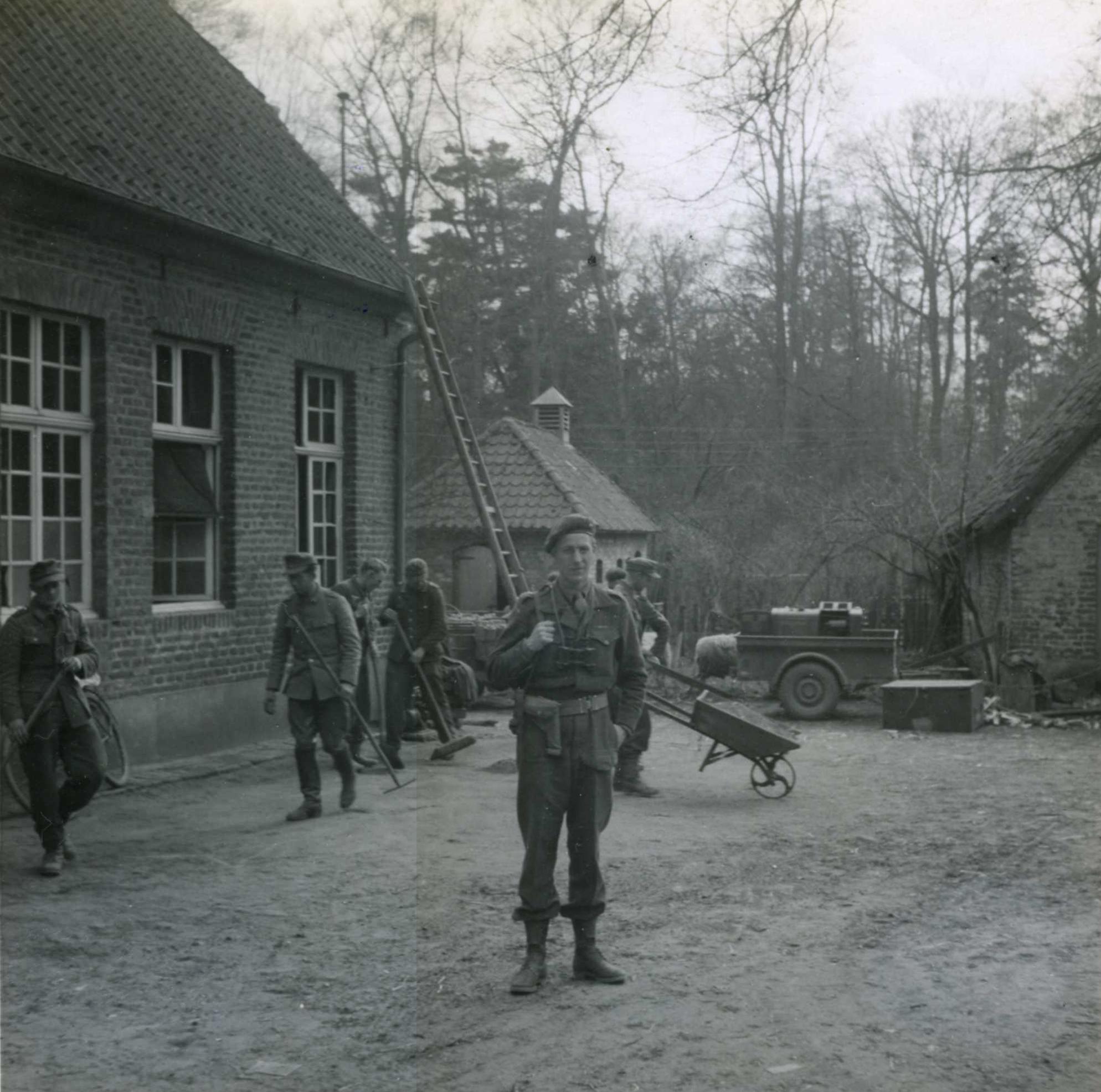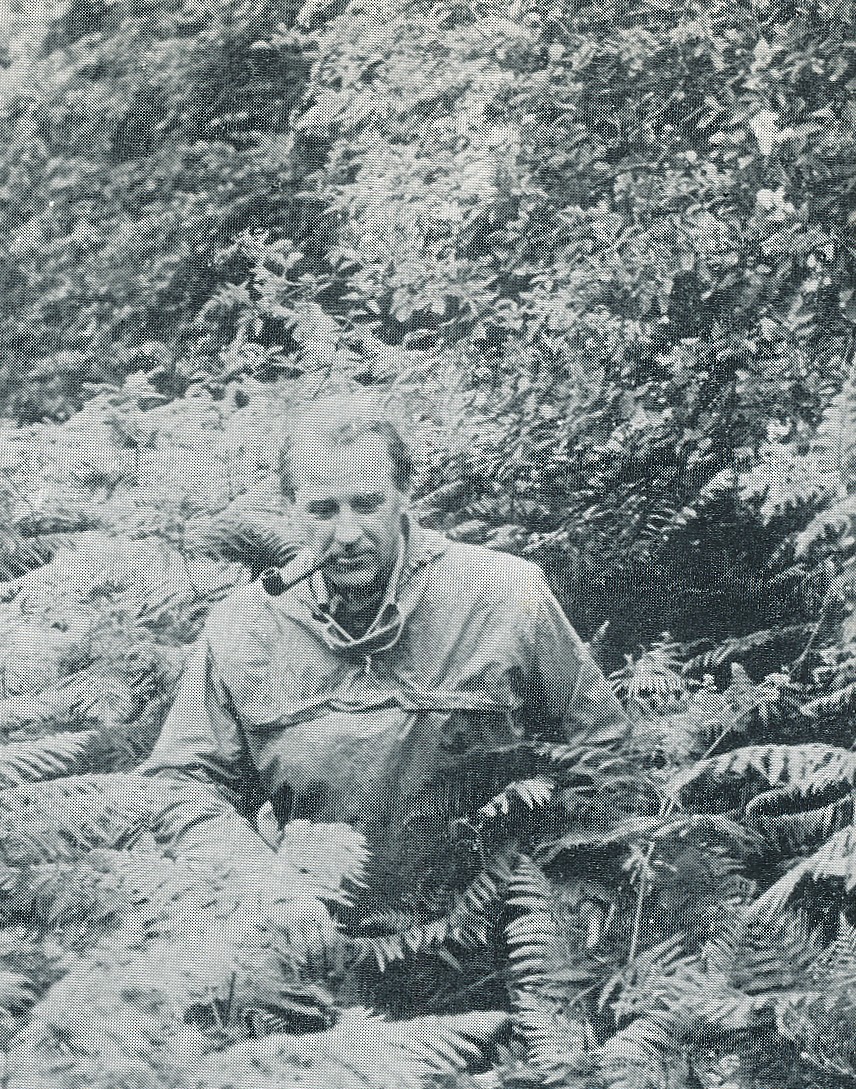Norman Field was born in Croydon March 1917, the son of Capt. H D Field, Royal Army Medical Corps who was a front line Doctor and killed at Ypres in September 1917.
He grew up in the country in Somerset and became a good fisherman, excellent shot and horseman, naturalist with keen observation of the countryside.
He married Geraldine Gridley at Holy Trinity, Dover. She was the youngest daughter of Sir Arnold Gridley MP, Chairman of 1922 Committee (later Lord Gridley).
| Unit or location | Role | Posted from | until |
|---|---|---|---|
| The Garth, Bilting, Kent | Intelligence Officer | 19 Dec 1940 | 09 Dec 1941 |
| Kent | Intelligence Officer | 19 Dec 1940 | 09 Dec 1941 |
Prep school at Burnham- on-Sea and in 1931-35 went to Shrewsbury. Here he rose to become Oldham’s Head of House was vice Captain of Boats and rowed at Henley.
1935 he attended Sandhurst where he excelled. A "Rowing Blue", Captain of Boats at Henley and a “Company” Coach. He was promoted to a Senior under Officer and was on duty on the processional route at the Coronation of George V1 - shouting orders to the lines of cadets.
Later - mushroom farmer and artist
1937 he was commissioned into 2nd Battalion The Royal Fusiliers, Second Lieutenant Field was based at Balisha Barracks, Shorncliffe, Kent.
1939 Rearguard action Dunkirk, 1940-41
He first signs Scout Section Arthur Spurrett's pay card 19 Dec 1940 as Auxiliary Units Intelligence Officer Kent.
9 Dec 1941 Laves Auxiliary Units
1942 Staff College Camberley.
1943 Airborne operations Mediterranean. Recalled from Italy and involved with the planning of Allied airborne landing on D-Day.
1945 awarded OBE
He was interviewed by researchers and a military historian in November 2008 and gave a vivid account of experiences, in his own words, during the period of 1939-41. An insight into the man, his military progression and like so many, an unflinching commitment to serve;
THE 2ND BATTALION ROYAL FUSILIERS FIGHT REARGUARD ACTION BACK TO DUNKIRK
In October 1939 the Battalion was sent to France near Arras before being moved up to an outpost of the French Maginot line, West of Metz over Christmas 1939. Field was Signals officer and in March 1940 selected to become Adjutant following James Hill's departure to GHQ Whilst fighting a rearguard action.
In his own words
"We were having a pretty tough time facing the Germans at Nieuport- they knew where we were and they were giving us hell with the shelling and night patrols with their scmeitzers using tracer bullets. We were positioned in a strip of wood running from Nieuport down this way. We were in a first World war small Belgian block house as Battalion HQ. Outside there were soldiers in a slit trench either side of it. some, including our Regimental Sergeant Major were sitting with their backs to this block house as though sheltering from the rain but shell bursts are omnidirectional and they were caught by the shell blast still sitting there but dead. I'd been sent out to an alternative HQ and then came back and was in a ditch a few hundred yards away because the shelling. while I'd been away the block house took a direct hit. I saw couple of officers and they were grey; they'd been through hell. They were talking to a fellow officer, Malcolm Blair, a wonderful and brave officer who had returned to find us from the Dunkirk beach and give support. A large shell had hit the top of the block house. Malcolm was killed and they were shaken up by that and not least the hell they had gone through!"
When asked about his CO, Norman Field said
"He was very conscientious. He was in this block house when I was in there. We were all short of sleep and the CO suddenly, in a dream, jumped up and yelled' Follow me! We've got to see these bloody Germans off! There was a dead straight road between us and Nieuport and we were in a little spinney alongside it. He rushed out on to the road and a pretty efficient sniper lost no time at all in getting him straight through his helmet. He fell flat on his face on the road. We got hold of his legs and pulled him in."
Commenting on this dangerous thing for him to have done with the snipers about. Field commented
"Not if you were quick enough. I used to cross the road if I wanted the lavatory! They had to be bloody quick to get you! He wasn't killed outright, he survived for 24 hours or so. He was Lt Colonel Allen. Brother of a chap called Gubby Allen, the England Cricketer"
Gubby Allen rang later to ascertain what had happened when Norman Field was himself in hospital back in England.
The Battalion came back to the new HQ in this ditch, This HQ consisted merely of Field with a signaler equipped with vital telephone. Dribs and drabs of survivors came back and sought shelter in neighbouring ditches for 24 hours until we got 5 vehicles or so and everyone climbed on board and we went to La Panne.
Norman Field recalls
"I was under a bandstand at the front with Jack Lotinga who became CO after Allen was killed. Jack was a very jolly man... the story goes that he was walking down that dead straight road at night with his bedroom slippers on and German patrols started firing on either side and he just kept going!
Kit Bowring was the only Company Commander who hadn't turned up with the remainder of his Company and I knew the way they should have come into the place and so I said to Jack I better go and catch them as they get to the cross roads to show them where we are It became quite dark and it was wasn't long before the cross roads came under pretty heavy shell fire. It was all a bit frightening and I was in a sort of cellar window to a house taking shelter. It's fascinating stuff to see what happens when these shells burst on the road; like white tadpoles whizzing around because they are bits of white hot metal. I was crouched in the cavity may be 6 inches deep and I felt my left hand move. I lifted it up and my fingers wouldn't work. I realised I'd been clobbered but I didn't feel a thing, not then. only my thumb and forefinger are fully functional. When I realised that I had lost the back of my hand and it wouldn't work I thought I'd better see who I could find on the beach. I started calling "Royal Fusiliers!" and a voice called out "Come and lie down over here!" so I did and found myself next to Jock Cleghorn, a Fusilier Captain who was with Brigade HQ 12th Infantry Brigade . He dressed my wounds. We were lying flat on our faces because these bloody shells were coming in all the while on to the beach. There was a small plane going in circles overhead chucking out flares that hung in the air and made it like daylight, directing the artillery fire on to us. We couldn't stand up , it wasn't safe. It was dark all this was at night. We hadn't got any weapons everything had been abandoned on orders, weapons, transport. We hadn't. even got spades!
The firing was so intense and people were being hit all over the place and crying out; awful! a nightmare. We were worn out and hadn't had any proper sleep for ages. Lack of sleep had been very debilitating for some time. We were told we were going to be taken off by ship. We spent the night, when it was safe to raise our heads looking for lights. As daybreak approached someone saw a light and then another and then these ships turned up and everyone was on their feet running down to the water, ready to get on board. Everyone arrived at once and it was chaos. The Brigadier got hold of two MP'S with Bren guns one firing that way and one firing this way and anybody who went into the sea was deterred by the threat of being shot! I don't think anyone was shot because they weren't fool enough to try it! The only gateway was between these two policemen and so the Brigadier had control."
ESCAPE AND UNDER ATTACK
"The ships were small Minesweepers. To the shore were sent rowing boats of canvass, collapsible, river crossing type boats holding only 5 men. no seats, one of these saved me!
Anyone who'd been wounded was given priority and that's where I was lucky. I was hauled on board a Minesweeper. When I got on board I found one of my signalers, he had been shot in the stomach, a nice man. He was saying "I'm going to die!" I said " of course you're not, I'll go and get a Doctor. I found one and told where this chap was and then I lay under the table in a galley and went sound asleep in a flash. When I came to, the boat was on its beam ends. We were being dive bombed by 8 Stukas. 3 went for the Destroyer behind us and sank it and God knows how many were drowned! The other 5 came for us! I didn't hear these bloody things coming down. Fortunately, the Captain was on deck. He had his hand on the wheel and he judged, because they came in very low down to about 200 feet before letting go of the things. He'd whiz the wheel round at the right time and all the bottles where falling off the shelves in the galley. They missed us! All I could see out of the corner of my eye were the spikes of water going up, as some landed in the sea only 10 to 15 yards away, very scary!
The signaler had died and had to be disposed of overboard and there was a priest who'd been in my house at Shrewsbury- Sam Woodhouse, he became Dean at St Pauls, I think. The Minesweeper was loaded with Frenchmen and I couldn't understand this. Apparently, we'd been into Dunkirk and taken on these Frenchmen on top of all the British and I'd slept through the lot! On arrival at Sheerness there was all this rubbish in the water and I looked and there were men drowning, spewing up water, Nobody doing anything about it. It was horrible. We came down the gang plank and I gave an MP the papers of the signaler who had died. I hope he put them through the right channels. My one objective was to phone my young wife. I found a telephone in the Commandant's house and he let me use it. I told her that as far as I knew the wounded were being taken by Ambulance to Dartford where a hospital was being manned by the Canadians! Shortly after the phone call my wife received a frightening telegram saying that I was wounded and missing and presumed dead! She knew I was safe!"
RECOVERY AND A VERY SECRET ASSIGNMENT
Frustrated by events and on sick leave in Somerset he was visited by Peter Wilkinson, A Royal Fusilier, a brother officer. In Field’s own words.
"He'd heard that I'd been wounded and came to see how I was getting on: I had plenty of time to consider what I might do next. I decided that an undercover job might allow me to use my wits for a change! Believing that Peter might be so employed, which he was. Just before I shut his car door, I asked him to ‘please bear me in mind!’ Peter made no reply and his face remained blank".
Two days later Field was summoned by telegram to Coleshill House.
"It (Coleshill) was a huge empty place. There were two officers wandering around. I told them who I was and I was asked to wait in this vast servants hall. Eventually, a smallish chap in civilian clothes came in and interviewed me, He told me his name was Colonel Colin Gubbins which meant nothing to me whatsoever. He said he'd been given the job of setting up this underground operation in this country to deal with the invasion when it happened. Was I prepared to do it he asked? Yes, I replied without hesitation and it was lucky I did, there is enormous scope for using one's wits. I said to him that I am still a medical category, Sir, even if you want me! He said, leave that to me! Two days after that, I received a telegram telling me to go to Taunton for a special medical. I went, a got a certificate saying I was fit for duty in the UK and then a few days later I got another one asking me to report as a Captain; an intelligence officer, so I skipped a rank and became a Captain overnight, still in the Royal Fusiliers. There were various young 'Intelligence Officers' at Coleshill and they asked me who I was and when I told them they said ".You must be the lucky chap who is going to the Garth, Captain Peter Fleming is moving on" I said, "who, what and where is the Garth? It was the place set up by Peter Fleming in Kent. Officially Briefed and taken by his CO, Colonel 'Bill' Major to The Garth at Bilting, Kent."
On arrival at the Garth, Colonel Major introduced Field to Captain Peter Fleming and they were surprised to find a Luftwaffe pilot who had just been shot down lying on the kitchen table! He had arrived by parachute, wounded in the arm and not in a very good state covered in yellow dye. It had burst over his head! The ambulance turned up and took him off. The table was cleaned up and lunch produced for the assembled company at the same table!
At the hand-over briefing, Fleming gave good advice to Field: “Only deal with Generals if you want anything!” Captain Field took over command as Commanding Officer XII Observation Unit (Intelligence Officer of Auxiliary Units in Kent) and established some formal control.
Field was well provided with transport, both military and requisitioned vehicles. He used the latter when in civilian clothes. His expertise was with the construction of the hideouts and explosives. Whilst experimenting, he famously blew up a car which took off in one piece and landed several fields away, much to the alarm of his men! It was clear that had the invasion taken place he was to 'stay behind' undercover as an Intelligence Officer and lead his men from the front rather than be withdrawn for other duties.
THE MEETING WITH MONTGOMERY
There were meetings with General Montgomery based at Tunbridge Wells in 1941. At the outset, he knew little of Field and what he was doing in his sector. Field had been advised by Peter Fleming to telephone the Corps Commander and just tell him you want some leave. "Don't forget, you'll get highly involved in this. It's a good thing to have some leave. I suggest you ring up the Corps Commander. You will find the Corps Commander takes a close interest in our progress". Field remembered this good advice and telephoned. A young Aide De Camp answered but the boss was out and he seemed clueless. Field said, "Don't worry- you will find your General knows all about me". He didn't seem to know about me at all!.
Field said "when the boss gets back just tell him Captain Field has phoned to say he'd like to go on leave and he hopes he has no objection". At Coleshill, Field had met Eustace Maxwell who had some salmon fishing on the Tweed and he asked if Field wanted to go and have a week's fishing and he couldn't pass that up and he would have a week's leave. That evening I had a call back from a Chief of Staff called Brigadier Simpson . He said "General Montgomery has had your message. He doesn't think he knows of a reason why you can't go on leave but doesn't think he knows you so would you come and see him" and so Field did! .
The first meeting was on the A20 cross roads at Lenham where on coming down the hill he viewed the small figure of Monty pacing up and down in front of a very large staff car. Field thought now I'm for it! He saluted and apologised for being late. The General responded, "No you are not! I'm always two minutes early- get in the car!" and they drove off at speed with Field's driver following behind
He obviously impressed Monty as following inspection of the hideouts “Has Winston seen this? I'll bring him down" said Monty.
In Norman Field he had seen a young regular soldier with potential, a Sandhurst background and battle experience. Monty said “I think you should start thinking about Staff College.” Field protested that he had no interest in staff work. Despite an intervention from Coleshill and an official visit to Monty's HQ, the General insisted on him joining his own staff before attending Staff College at Camberley. On graduating in 1942, Major Field joined the operations section of HQ 1st Airborne Division. In at the start and received recognition in their official history for his work in the formation and planning of Airborne Forces.
STAFF COLLEGE AND AIRBORNE OPERATIONS
As a Staff Officer to General 'Boy' Browning, Field was now involved in Airborne operations in Italy, Sicily, Middle East and North Africa.
He went to Tunisia the following year to help plan the Allied invasion of Sicily. While in North Africa, Field met “Popski” — Major Vladimir Peniakoff, the Russian émigré commander of the 1st Demolition Squadron that had carried out hit-and-run raids in the Western Desert campaign. Peniakoff was preparing to submit his plans for similar action in the Italian campaign, but he was no staff officer. Field helped him to couch his proposals in the correct military style and “Popski’s Private Army” went on to further successes in Italy. Field was recalled from Italy in late 1943 to start planning joint British and American Airborne assaults on D-Day. Planning included the successful operations at the Merville Battery and Pegasus Bridge. He had access to all the D-Day plans at St Paul's School.
He was specifically requested by the Americans to work with them as Assistant Deputy Chief of Staff, Plans. All because of his reputation.
In March 1945 Field was promoted to Lt Colonel and seconded to Lt General Ridgway, USA, First Allied Airborne Army for the Rhine Crossing 'Operation Varsity'. He was subsequently awarded The American Bronze Star for his meritorious service in connection with military operations in the invasion of Holland, and mentioned in Despatches.
Returning to General Richard Gale, he became his Chief of Staff. He described Norman Field as having done his job magnificently, as did General 'Boy' Browning who said: "He has been outstanding as a young and extremely capable staff officer with plenty of initiative and ideas and sufficient caution to back them."
He was awarded the OBE (Military) in 1945. Field was present at the liberation of Copenhagen and was due to fly out to Burma to assist in setting up a British Airborne Corps HQ. On the first day of his embarkation leave he experienced a life threatening stroke which stifled his progression in the Army. He retired from the Army in 1948.
CIVILIAN LIFE AND ARTISTIC FAME
Civilian desk jobs in London followed between 1948-1955 and did not suit. So in 1955 from a commuter life in Buckinghamshire, the family moved to Bilting in Kent, less than a mile from Field's wartime clandestine hideouts. In an orchard of a 17th Century cottage Fair Acres, he built a mushroom farm.
The farm provided daily supplies to Covent Garden and top restaurants. It was a hard, seven days a week work.
The discovery of his self-taught artistic ability was born out of repairing his mushroom farm machinery. He had acquired oxy-acetylene welding equipment and this started him sculpting in steel. Taking the form of people, birds and plant life, exhibiting at the City of London Guildhall Art Exhibition.
Sales were high for a new artist and purchases went overseas. In 1969 his work of "Rugby Players" was selected as one of sculptures representing British artists at the Second Biennale of Sport and the Fine Arts in Madrid and this art work purchased by the Netherlands Government. Acceptance by six National Art Societies in their London exhibitions gave him confidence to venture into Cork Street, W1 where the John Whibley Gallery took him on and gave him a ‘one-man show’ in June 1970.
Work was previewed in the art world press and on a BBC2 art programme.
Fair Acres became full time maintenance and with the passing of years, it was decided to move in 1997 to a smaller house in Wye, eventually to Church Street where Norman and Geraldine lived. She sadly died in 2001.
He warmly engaged with many village friends in the streets of Wye and proudly, wearing his red beret, laid the wreath of poppies on behalf of the village on Remembrance Sunday in 2008.In his life time, he had been at heart, a countryman and had an encyclopedic understanding of country life.
He maintained close links with The Royal Fusiliers through the years, frequently, attending the Regimental Dinners and exchanging stories on the Fusiliers, Airborne Forces and Trout Fishing with his good friend and brother officer, Brigadier James Hill, DSO and two bars MC. Those many years ago he had passed on the mantle of Adjutant, 2nd Battalion, Royal Fusiliers to Norman Field in 1940 prior to the evacuation at Dunkirk.
He was a patron and respected adviser to the Museum of the British Resistance Organisation at Parham in Suffolk.
He loved his family and was loved by many who met him, an inspiration, a survivor-an example of bare courage, fortitude and dedication to his Country which so many of his brave generation displayed. Many researchers and military historians to this day continue to explore the clandestine operations of the Auxiliary Units and the major part he played at its conception. He will be sadly missed by us all but never forgotten. His name in military books and his art will see to that!
He gave a few interviews to the Imperial War Museum (refs 14759, 15340 and 29461). These are yet to be digitised so are not at present available to hear.
Lt Colonel Norman J L Field OBE- 2nd Battalion, Royal Fusiliers, Auxiliary Units and 1st Airborne Division died on September 10th 2009, aged 92. 120 Friends and family attended his funeral at St Gregory and St Martin Church in Wye, Kent. The Royal British Legion and the Western Front Association were in attendance.
Son, Richard Field and the Field family
https://discovery.nationalarchives.gov.uk/details/r/D7389550
https://www.thegazette.co.uk/London/issue/37302/supplement/4990/data.pdf
https://www.thegazette.co.uk/London/issue/37686/supplement/4103/data.pdf
https://www.thegazette.co.uk/London/issue/36994/supplement/1558/data.pdf
https://www.thegazette.co.uk/London/issue/37239/supplement/4320/data.pdf
https://www.thegazette.co.uk/London/issue/38530/supplement/631/data.pdf
https://www.thegazette.co.uk/London/issue/38256/supplement/2259/data.pdf
Army List 1941
Obituary Daily Telegraph 19 Oct 2009
